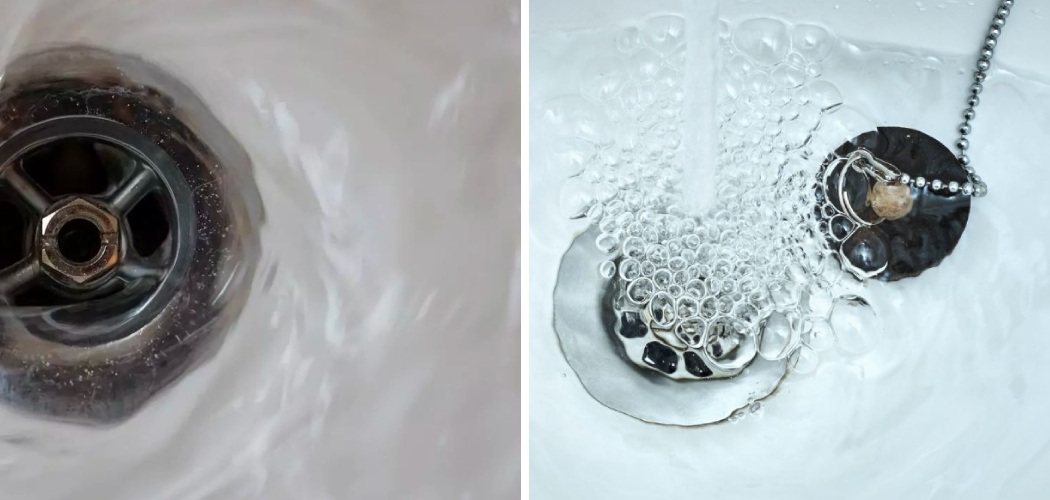A gurgling bath can be an annoying and perplexing issue for many homeowners. This unpleasant sound often indicates an underlying problem within the plumbing system, such as a blockage or ventilation issue.
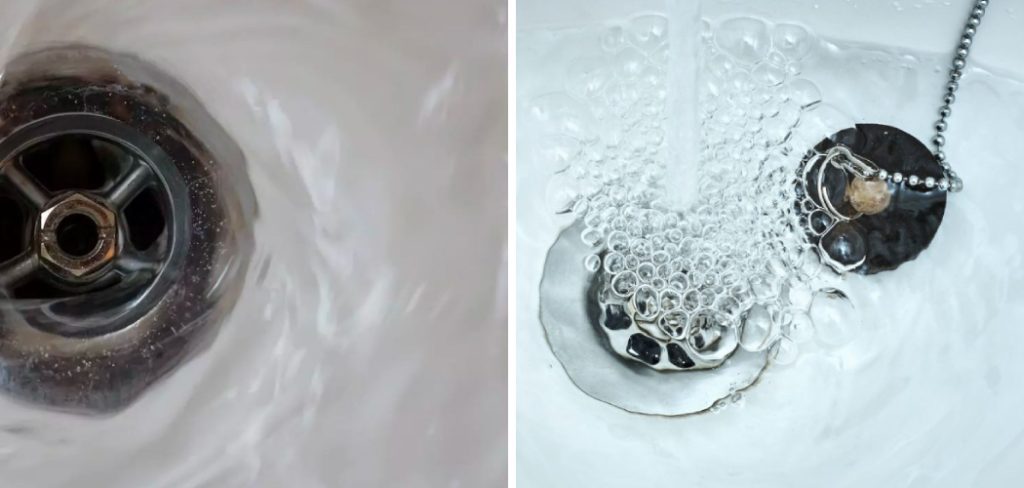
Understanding the potential causes and knowing how to address them can not only restore tranquility to your bathroom but also prevent more serious plumbing problems from developing. This guide on how to stop bath gurgling will walk you through the steps to diagnose and fix the causes of a gurgling bath, helping you maintain a peaceful and efficiently functioning bathroom.
Why Is My Bath Gurgling?
Before diving into the solutions, it’s important to understand why your bath is gurgling in the first place. The most common causes of this issue include:
Air Trapped in the Pipes
When the air gets trapped in your plumbing system, it can cause pressure imbalances and result in that dreaded gurgling sound. This is often caused by a partial clog or improper venting.
Clogged Drain or Vent
As debris builds up in your drains and vents, it can restrict the flow of water and air, leading to gurgling sounds. This is especially common in older homes with outdated plumbing systems.
Improperly Designed Drainage System
In some cases, the layout and design of your plumbing system may also contribute to bath gurgling. For example, if your tub drain is located too close to the main drain stack, it can create a vacuum effect that pulls air into the pipes.
Necessary Tools
Now that you understand some of the potential causes let’s go through the steps to stop bathing and gurgling once and for all. You will likely need the following tools:
Plunger:
A plunger can help you remove clogs and restore proper water flow.
Plumbing Snake:
For more stubborn clogs, a plumbing snake may be necessary to clear out debris from the pipes.
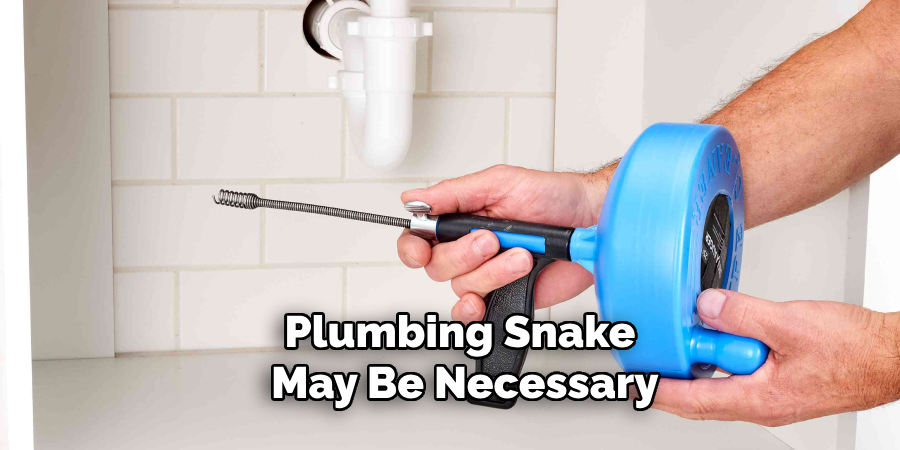
Pipe Wrench:
This tool will come in handy when accessing and inspecting your drain and vent pipes.
Drain Cleaner:
In some cases, using a drain cleaner can effectively dissolve any build-up causing the gurgling sound. Be sure to use a non-toxic and eco-friendly option.
9 Easy Step-by-step Guidelines on How to Stop Bath Gurgling
Step 1: Start with the Drain
The first step in addressing a gurgling bath is to clear any potential blockages in the drain. Begin by removing any visible debris or hair from the drain opening. Next, use a plunger to create a seal around the drain and push it up and down vigorously. This action can help dislodge minor blockages and improve water flow. If the gurgling persists, try using a plumbing snake to reach deeper into the pipes and remove more stubborn clogs.
Insert the snake into the drain and rotate it while pushing it forward until you feel resistance. This resistance indicates you have encountered a blockage. Continue rotating and pushing the snake to break through or retrieve the blockage. Once done, run hot water down the drain to flush away any remaining debris.
Step 2: Check the Vent
If the gurgling sound persists, check the vent pipe to ensure it’s not obstructed. The vent is typically located on your roof and ensures proper airflow in your plumbing system. If it is clogged with debris or a bird’s nest, it can create pressure imbalances and result in gurgling sounds.
It is important to note that accessing and cleaning the vent pipe can be dangerous and should be done by a professional if you are not comfortable doing it yourself.
Step 3: Use a Plumbing Camera Inspection
For more complex plumbing systems, a camera inspection may be necessary to identify any potential blockages or issues within the pipes. A professional plumber can perform this task and provide recommendations for resolving any problem areas.
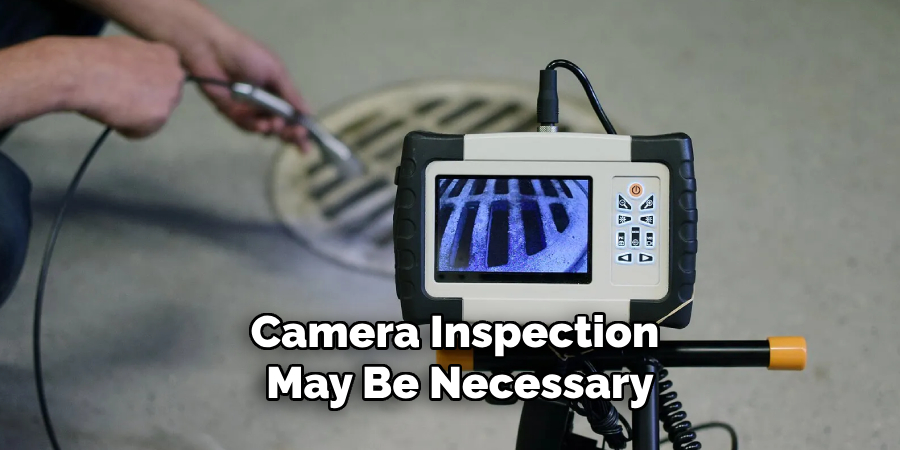
But if you want to try it yourself, there are affordable DIY camera inspection kits available on the market that can help you identify and address any issues in your plumbing system.
Step 4: Check for Leaks
Leaks in your plumbing system can also contribute to gurgling sounds. Check all visible pipes and connections for any signs of leaks, such as water stains or dripping water. If you notice any leaks, it’s best to call a professional plumber to repair them.
Although tempting, do not use caustic chemical drain cleaners to address a leak. These can damage your pipes and worsen the problem.
Step 5: Install an Anti-Siphon Valve
If your bath gurgling is caused by a vacuum effect due to an improperly designed plumbing system, installing an anti-siphon valve can help. This device prevents air from being pulled into the pipes and eliminates gurgling sounds.
If you are not familiar with plumbing, it’s best to hire a professional to install the valve for you. There are also DIY kits available, but it’s important to follow the instructions carefully.
Step 6: Check for Low Water Pressure
Low water pressure can also contribute to a gurgling bath. If you notice that your water pressure is low, check the main shut-off valve to ensure it is fully open. You can also try cleaning your faucet aerators to remove any build-up that may be affecting water flow.
This step may also require the assistance of a professional plumber, especially if you have older or complex plumbing systems.
Step 7: Use Non-Toxic Drain Cleaners
If your bath gurgling is caused by debris build-up in your pipes, using a non-toxic drain cleaner can help. These cleaners use enzymes and bacteria to break down organic matter without damaging your pipes.
Be sure to follow the instructions carefully and avoid using chemical drain cleaners, as they can be harmful to both your pipes and the environment.
Step 8: Consider Upgrading Your Plumbing System
In some cases, an outdated or poorly designed plumbing system may be the root cause of persistent bath gurgling.
If you have an older home with original plumbing, it may be time to consider upgrading to a more modern and efficient system. This can not only resolve gurgling issues but also improve water flow and save you money on utility bills.
It is recommended to consult with a professional plumber to assess your current plumbing system and provide recommendations for upgrades. You can also research and compare different plumbing systems to find the best option for your home.
Step 9: Call a Professional Plumber
If you have tried all the previous steps and the gurgling persists, it may be time to call in a professional plumber. Plumbing issues can sometimes be more complex than they appear, and a licensed plumber will have the expertise and tools to diagnose and fix the problem effectively.
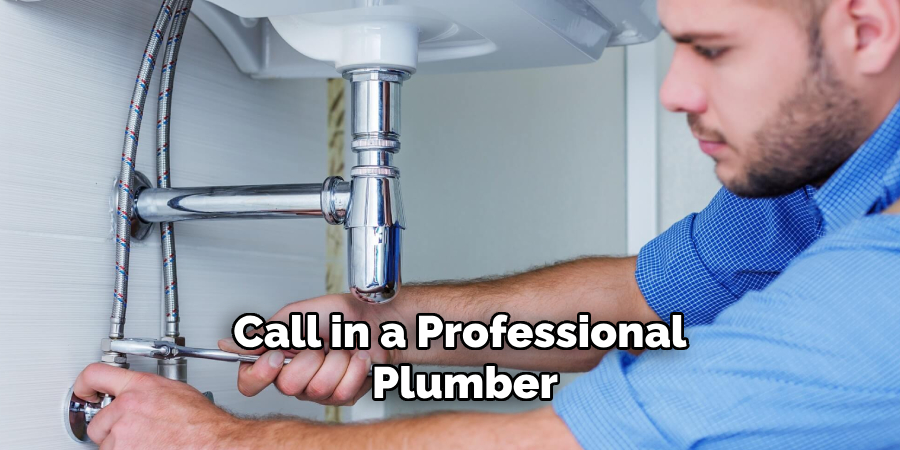
They can perform a thorough inspection of your plumbing system, identify the root cause of the gurgling, and provide a permanent solution.
While it may be tempting to attempt one more DIY fix, enlisting the help of a professional can save you from further damage and potentially more costly repairs in the future. Don’t hesitate to call a plumber for assistance if needed.
Following these easy step-by-step guidelines on how to stop bath gurgling can help you effectively stop bath gurgling and ensure a more pleasant and efficient bathing experience. Remember to regularly maintain your plumbing system, avoid harsh chemicals, and seek professional help when needed to keep your bath running smoothly. Happy bathing!
Additional Tips for Maintaining a Gurgling-Free Bath
- Regularly clean your drains and pipes by using non-toxic methods, such as baking soda and vinegar or hot water with dish soap.
- Avoid pouring grease, oil, and large food particles down the drain to prevent build-up and clogs.
- Use a mesh drain cover to catch hair and other debris before they can enter your pipes.
- Install a water softener if you have hard water, which can cause mineral build-up in your plumbing system.
- Consider scheduling annual plumbing inspections with a professional plumber to catch any potential issues before they become bigger problems.
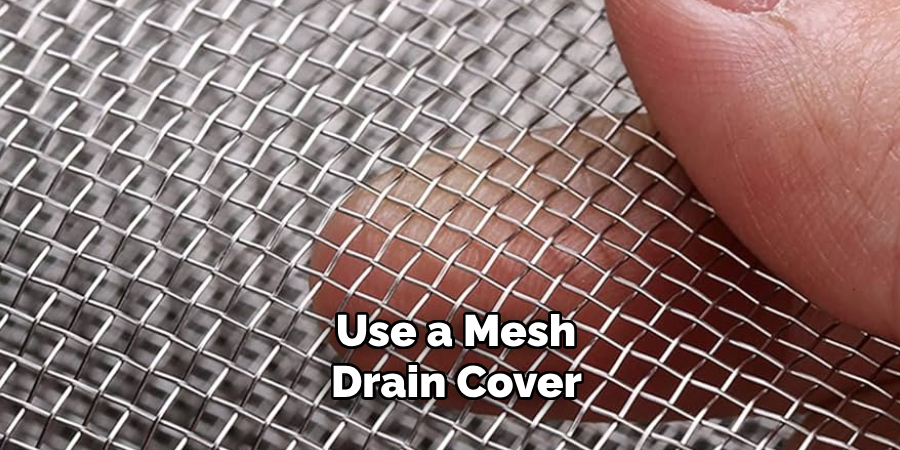
By following these additional tips, you can help maintain a gurgling-free bath and keep your plumbing system functioning efficiently. Remember, taking care of your plumbing system is a crucial part of home maintenance and can save you from costly repairs in the future.
So, make sure to stay proactive and address any gurgling sounds or other plumbing issues promptly for a stress-free bathing experience.
Frequently Asked Questions
Q: Can a Gurgling Bath Be Harmful?
A: Gurgling baths are typically harmless, but persistent gurgling could indicate underlying plumbing issues that may need to be addressed. It’s best to fix the problem sooner rather than later to prevent any potential damage to your plumbing system.
Q: How Often Should I Clean My Drains and Pipes?
A: It is recommended to clean your drains and pipes at least once a month to prevent build-up and clogs. However, if you notice slower drainage or gurgling sounds, it may be necessary to clean them more frequently.
Q: Are Chemical Drain Cleaners Safe to Use?
A: No, chemical drain cleaners can be harmful to both your pipes and the environment. It is best to use non-toxic methods or seek professional help for stubborn clogs. In addition, avoid using chemical drain cleaners on a regular basis as they can cause damage to your plumbing system over time. So, it’s always better to opt for safer options.
Q: How Much Does It Cost to Upgrade Your Plumbing System?
A: The cost of upgrading your plumbing system can vary depending on the size and complexity of your home and the type of system you choose. It is best to consult with a professional plumber for an accurate estimate. Keep in mind that investing in a modern and efficient plumbing system can save you money on utility bills in the long run. So, it may be worth considering as part of your home maintenance expenses.
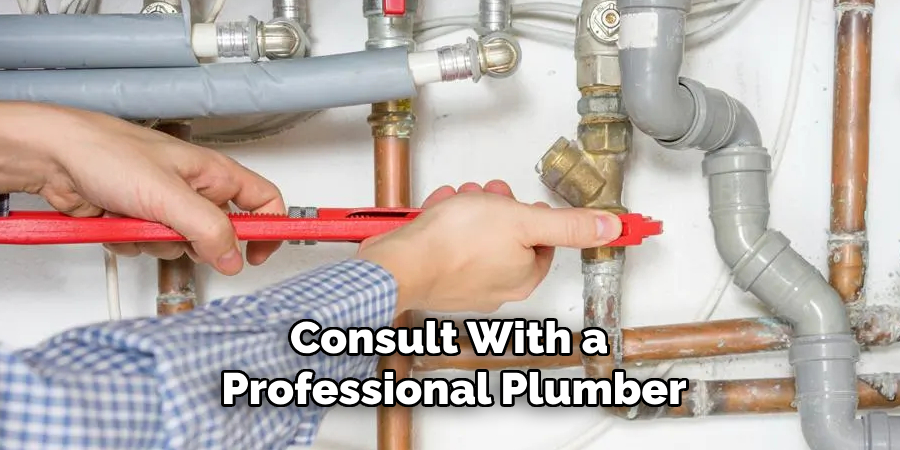
Conclusion
In conclusion on how to stop bath gurgling, addressing a gurgling bath involves a series of straightforward yet effective steps to ensure a smooth and enjoyable bathing experience. From checking for low water pressure and using non-toxic drain cleaners to considering upgrading your plumbing system and calling in a professional plumber when necessary, taking proactive measures can help you resolve persistent gurgling issues swiftly.
Regular maintenance, such as cleaning drains and pipes and avoiding harmful chemicals, plays a crucial role in keeping your plumbing system in top condition.
By staying vigilant and addressing any signs of trouble promptly, you can maintain a gurgling-free bath and avoid costly repairs in the future, ensuring a stress-free and pleasant experience every time you use your bath.

